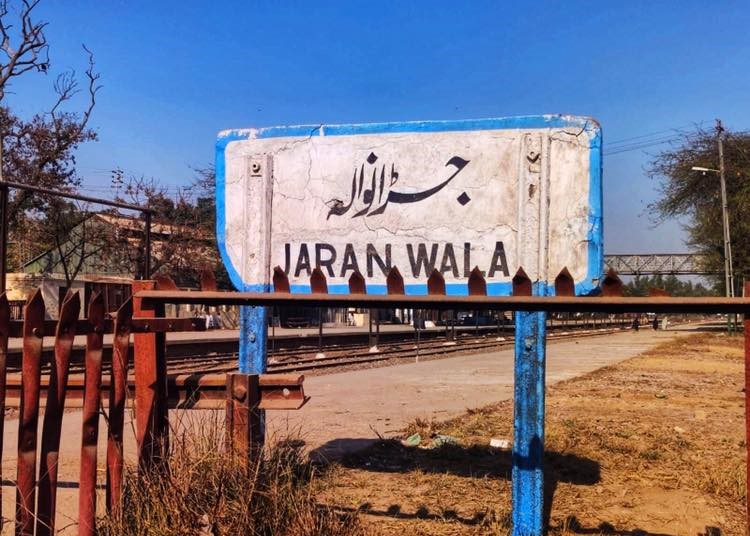News Desk
On March 18, 2024, the Christian community in Jaranwala, Faisalabad, became entangled in a legal mire with the registration of an FIR against nine of its members. This contentious case has escalated pre-existing religious and communal tensions, shedding light on the intricate challenges faced by minorities in Pakistan.
The FIR, initiated by Muhammad Afzal, accuses prominent Christian residents, including Riyasat Masih and Arif Masih, alongside seven others, of hostile actions. Allegedly, these individuals attempted to force entry into Afzal’s residence on March 16. As per the charges delineated under sections 427, 506/BTP, 148 TP, and 149 of the Pakistani Penal Code, the altercation purportedly stemmed from a financial dispute between Arif Masih and Muhammad Bilal.
Contrarily, members of the local Christian community present a divergent narrative. They contend that Muhammad Bilal, allegedly implicated in the infamous Jaranwala church riots of August 2023, orchestrated the confrontation. According to the local community, Bilal is accused of allegedly instigating violent attacks against churches, manipulated the situation to ensnare the Christian men in a fabricated case.
Pastor Naveed Mukhtar and resident Zohaib Daniel corroborate these counterclaims. They propose that Bilal, previously in hiding since the church riots, resurfaced to incite this altercation. Their account portrays Bilal as a schemer seeking to deflect his purported involvement in the prior year’s church assaults.
The complexity of this situation raises profound questions about the motives behind the FIR and the subsequent actions of the police. Notably, the inclusion of Arslan Masih, purportedly employed within the police department, among those charged, injects further intrigue and skepticism into the unfolding narrative.
The incident has reverberated throughout Jaranwala’s Christian community, sparking dialogues about religious discrimination, police neutrality, and the intricacies of communal strife. It is not merely the accused and their families who are impacted, but the entire community, grappling with mistrust and fear at the intersection of these allegations.
In response to the FIR, there have been escalating calls for a fair and transparent investigation. Community leaders urge the police to scrutinize all facets of the case, including the potential for manipulation and false accusations. They advocate for a comprehensive review of the events preceding the confrontation and the subsequent police interventions.
Furthermore, Zohaib Daniyal also emphasizes the deteriorating condition of the community since the Jaranwala incident. He refutes claims of any Christian community members attacking Afzal’s house, terming it a false flag tactic to divert the course of justice. He notes widespread support for the majority community in the village, leaving Christians feeling marginalized and vulnerable. He asserts their determination to pursue justice while acknowledging the worsening situation and considering relocation as a safety measure.
As the case unfolds, there is optimism among the Jaranwala Christian community and beyond that justice will prevail. They await a resolution that not only exonerates the unfairly accused but also signifies progress towards greater recognition and respect for religious diversity in Pakistan. The outcome of this case could establish a precedent for upholding minority rights amidst communal conflict, marking a pivotal moment for both the Christian community and Pakistan’s commitment to religious harmony and equality.


